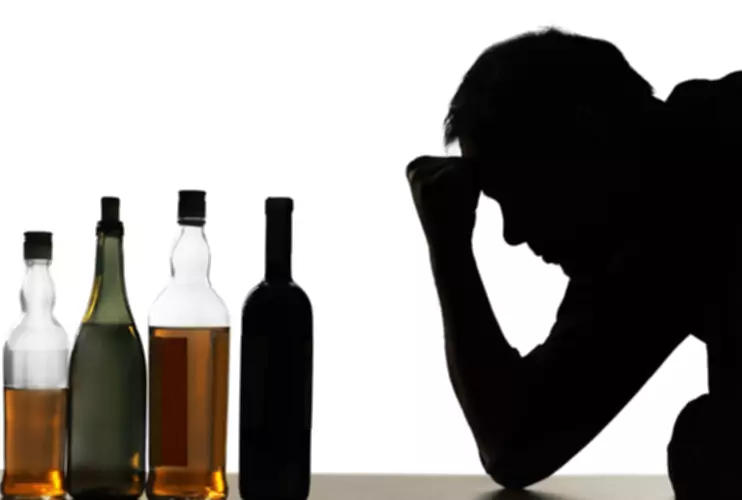
“In this day and age, unfortunately, every family has the risk of somebody developing an addiction, because of the stress of society and the lack of connection between people,” she said. If you believe you or someone you love may be struggling with addiction, let us hear your story and help you determine a path to treatment. There are two monthly virtual meetings (1st and 3rd Tuesday of each month) to create a space where family members can have a learning collaboration with each other. If you are a family member or loved one and you are interested in participating, please join us. Both inpatient and outpatient facilities offer support groups for patients to connect with peer groups.
The four stages of recovery
This may be especially salient for young adults who are estranged from their families of origin but remain connected with other concerned adults in their family-of-choice circle. Research is needed to evaluate the potential benefits of infusing peer/community and DTC services with family-oriented programming that scaffolds youth to pursue healthy (re)connection with family and (re)investment in familial goals. Two related behavioral interventions are primed to enhance youth MOUD services are family psychoeducation and shared decision-making.
- According to the latest national data (Substance Abuse and Mental Health Services Administration [SAMHSA], 2020a), about 6.4 million youth under the age of 26 meet diagnostic criteria for a SUD and over 300,000 youth meet criteria specifically for an opioid use disorder.
- We will give you the support you need as well as resources to figure out what else is out there.
- Her areas of expertise include stakeholder engagement, physician quality measurement and value-based payment transformation.
- The role of the family is important at this stage, as they can intervene into their young loved one’s life to discourage drug use.
Why Should People Consider Family Counseling?

A common saying at our treatment center is that we all know a loved one, either a friend or family member, who struggles with addiction. Provisional data from the Centers for Disease Control and Prevention (CDC) for 2022 is predicting another year of over 100,000 overdose deaths from drugs in the United States. Together, you can overcome alcohol use behaviors and embrace a new family dynamic where individuals feel valued and heard, and unhelpful behavior patterns are a thing of the past.
Additional Resources & Support For Families of Addicts

The Mobilize Recovery Family Advisory Committee is an initiative between Mobilize Recovery and Partnership to End Addiction. It is a group of impacted family members and loved ones who work collectively to provide evidence-based resources and trainings, tools for advocacy, and mutual peer support. For example, research has shown that knitting can be beneficial for psychological well-being, as people who knit experience feelings of calmness and happiness. A hobby such as knitting can serve as an effective form of stress relief for those coping with a loved one’s addiction.

Free SMART Family & Friends support meetings
- Mr. Moodie has developed key strategic partnerships to ensure he can offer holistic solutions to his clients.
- The most recent annual survey of SUD provider practices (SAMHSA, 2019) does not list any clinical or therapeutic approach that is fundamentally family-based.
- FAMILY FOCUSED.The Blanchard Institute cultivates a safe, comfortable environment for clients and families across North Carolina to be emotionally connected to their treatment provider.
- When the family comes together to offer support and focus on positive outcomes as a unit, it may help prevent many of the pitfalls during recovery.
- However, there is hope for both family members of individuals suffering from an SUD and for the individual abusing harmful chemicals.
- When a person enters addiction treatment and the family embarks on the recovery journey, the sense of hope everyone feels can be exciting.
Evidence suggests that parental reports are fair-to-good proxy measures of youth substance use behavior (McGillicuddy et al., 2012), though they typically underestimate to some degree (Fisher et al., 2006). Parental report may be particularly useful when youth have minimized self-report of use or impairment. Ideally, family screening https://ecosoberhouse.com/ tools could help to triage youth more accurately into risk categories and increase early identification of youth who have initiated SU. Given the paucity of well-validated family screening tools, identifying and validating such measures is a priority to promote family involvement in the screening stage of the continuum.
Get professional help from an online addiction and mental health counselor from BetterHelp. Being in a close relationship with someone struggling with addiction or problematic behaviors is highly stressful. With SMART Recovery Family & Friends we can help improve your understanding of the problem, the support available, and help you form a plan to regain control of your own life.
Families of Laguna Treatment Center Patients

As recovery moves forward, hidden and latent issues that fostered drinking or were created by the trauma of the drinking environment may need individual attention. Attention may also be given to how children in the family are being cared for and how they’re handling the changes to the family structure. They’re the people who may be the most likely to stick up for you, and who may have seen you through the best and worst of times. Since 2009, he has managed LECSA EAP, a not-for-profit employee/member assistance program affiliated with the Long Island Federation of Labor, the 4th largest central labor council in the US representing more than 250,000 union members. Katharine Pettit Creative – KPC spotlights social injustices using dance as our universal language, changing minds by opening hearts through movement.
The Family’s Role in Addiction and Recovery
To see if there’s a Family Support Navigator near you, click here for a county by county directory. We know that substance use disorders can have a devastating impact on the families and other loved ones of individuals in active addiction. Sadly, for too long, family members were at a loss for where to seek guidance or support. In response, FOR-NY developed a robust Family to Family Resource Guide to help loved ones identify and access critical resources that can assist in helping both their loved ones and themselves.
What Are the Advantages of Family Therapy?
While families often bear the burden of the consequences of their loved one’s substance use disorder, they can also play a huge role in their family member’s recovery. Ultimately, family members can play a pivotal role in their loved one’s recovery—but it starts with getting educated about addiction and a healthy acceptance of their limits. A study published in the Journal of Substance Abuse Treatment found that individuals with strong family support are more likely to enter and complete treatment, experience fewer relapses, and achieve long-term sobriety. This family support in addiction recovery is echoed by Dr. Emily Chen, a leading addiction specialist, who states, “Family support is a cornerstone of successful addiction treatment. It provides a safe and supportive environment for the individual to heal and rebuild their life.” Substance use disorder (SUD) is a complex issue that impacts not only the individual struggling with addiction but also their family members. Academic research consistently shows that a strong family support system is crucial in the recovery process, serving as a beacon of hope, encouragement, and practical assistance.
- Individual family counseling – In family counseling, we will address the family members individually without the suffering individual present.
- There are many online resources that can help families learn about addiction.
- They might learn to meditate to handle stress, or they might work on assertiveness skills.
- Another promising opportunity for advancing family-oriented engagement in youth SUD services is tele-intervention (Hogue et al., 2021).
